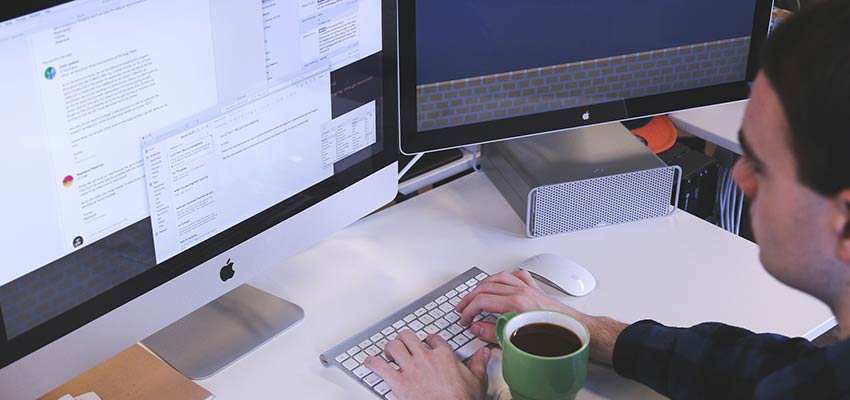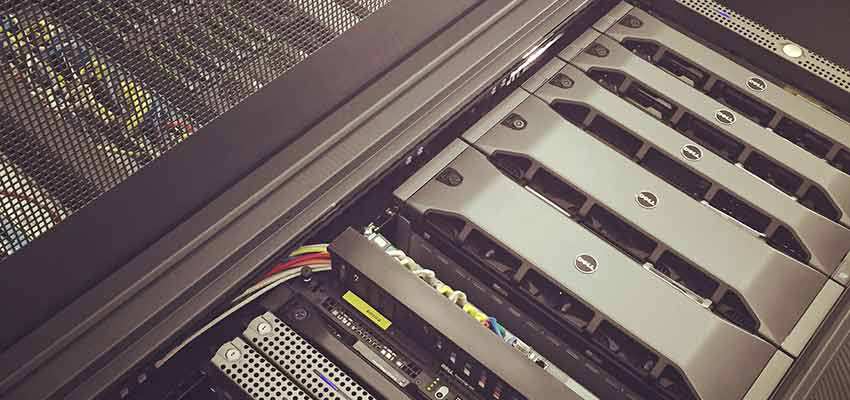Every entity has its own “cost of doing business”. Often times, the particular industry you’re in helps determine at least some of what you’ll have to spend to both get up-and-running and stay afloat over time. Freelance web design is an area, however, that can provide a whole lot of flexibility when it comes to cost.
Depending upon where you live and what kinds of services you plan to offer, startup costs can be practically zero. Conversely, it could run into thousands of dollars. Being a solo entrepreneur who works on a small scale, you have a level of cost control that most traditional industries can only dream of.
This is great news if you’re a designer who is looking to start off on your own freelance journey. It’s also something you may want to periodically reevaluate if you already have a business.
Let’s take a look at some common costs associated with running a freelance web design business, along with some advice for deciding where to spend your hard-earned money. It’s not an exhaustive list, but one that should help you get on the right track.
Starting Up
The process of opening for business takes a lot of planning and patience. And it’s also the time when you can run into some significant costs. But you do have a good measure of say in just how much you’ll need to spend. Here are a few factors to consider.
Where You Work
The upfront costs of opening your business have a lot to do with where you choose to work. Working at home is usually the cheapest option, provided you have an area ready to host your office space. That could be a spare room, part of a larger room or even a basement or garage. If you have some or all of the furnishings and equipment you’ll need, that will save you even more.
Renting office or co-working space will almost always be the more expensive route. Finding the money to pay for a space of your own can be very daunting if you don’t already have some significant cashflow. Depending upon your preferences, it may provide the better working environment, though.

Business Fees
Staying with the theme of where you work, the locality where your business is based could cost you as well. There might be business registration fees or permits required in order to start off on the good side of the law. For example, some regions charge a fee for registering a fictitious name for your business. And it’s likely that your tax rate and structure will change, too.
When it comes to dealing with national/regional/local government regulations, it’s best to do some research to find out exactly what you need to do. If you aren’t sure, then talk to a professional who can help. While it will cost you a bit more, you’ll get some peace of mind out of the process.
Equipment and Software
If you’re fortunate enough to have a powerful computer system and all the apps you need to produce great work, good for you! But it’s more likely that you’ll have at least some needs in this area.
While hardware prices have come down quite a bit in recent years, power and quality will always cost a bit more. It’s worthwhile to invest in at least a midrange computer that has plenty of storage and memory to handle all the multitasking that goes along with design and development.
Software is an interesting area because, in theory, you could do just about everything using free applications. There are a ton of options, from Sublime Text to GIMP to WordPress. All of your most important bases are covered and you don’t have to spend a dime.
Still, there are times when commercial software is the best fit for what you do. A subscription-based service such as Adobe Creative Cloud can cost a fairly significant amount of money, but you’re assured of getting the latest releases and industry-standard functionality. How you proceed is really a matter of preference and budget.

Ongoing Costs
After your business gets up-and-running, you’ll need to spend some cash in order to keep things humming along. If you opted for renting office space, that’s at least one big bill to pay each month. But there are some other items to think about.
Web Hosting
If you shop around for web hosting, you’ll find that prices range from just a couple of bucks a month all the way into the hundreds. How much you should spend all depends on your needs.
If you resell hosting to your clients, it’s important to determine a strategy for how to implement that service. For instance, you might decide that each client should have their own separate account or you could simply place everyone on one large plot of server space. From there, you can charge a price above and beyond what the service is costing you.
There is a little bit of money to be made here, which could more than cover any costs. Again, it’s a personal decision. Some designers charge clients monthly or yearly fees while others rely solely on affiliate programs to bring in extra revenue.
Whatever you decide, just make sure it’s the right approach for you in both the short and long term. Changing everything around afterwards can be difficult.

Software Licensing
While we already mentioned software as part of the startup costs above, it also qualifies as an ongoing one as well. Of course, the software you use to write code and do design work could have a monthly or yearly cost to maintain a current license. But that’s only part of the equation.
Another factor to think about is that of the developer license. A popular example of this is a commercially-available WordPress plugin that, for a higher yearly fee, enables you to use the software on any number of projects. So, instead of buying the software separately for each new project, you purchase one beefed-up license to use on multiple sites.
The biggest advantage here is that you don’t have to worry about convincing clients to purchase the software or struggle to manage dozens of license keys and renewals. And it’s also much more cost-effective.
Continuing with the plugin example: The downside is that, if you decide not to renew your license, it means any websites you’ve used the software on will be running outdated versions – unless you convince clients to buy their own copy after the fact.
Weigh the pros and cons of this kind of arrangement and do what you think will work best for your situation.
Marketing
Spreading the word about your business doesn’t have to be expensive. Some freelancers spend absolutely nothing when it comes to marketing. But whether you choose to do so depends on a few factors.
The web design market is crowded and it can be difficult to stand out. If your business relies on booking new clients throughout the year, then it makes sense to do at least some sort of advertising.
Online advertising is often a great way to go because you can set a reasonable budget and finely-tune your ads to target specific localities and demographics. But there is also an argument to be made for more traditional forms such as print ads or postcards, depending on your desired results.
And, let’s not forget about SEO. Search is an incredibly powerful force in directing potential customers your way. Even better is that you don’t necessarily have to spend any money directly in this area – just a bit of time.

Controlling Your Costs
One of the great advantages of being a freelancer is that, ultimately, you’re in control of all the important business decisions. Therefore, you have the ability to control how much you spend on a good many things.
There are some items that can’t be avoided, such as taxes or permit fees. For everything else, the key is to treat each expenditure as an investment in your business. Before you spend that money, think about how a purchase will benefit your bottom line. If it will help you make money either directly or indirectly (by boosting your productivity, for example), then it might be worth the cost.
All told, making smart decisions with money will help you get off to a strong start and stay strong through the many challenges of running a business.
Related Topics
Top